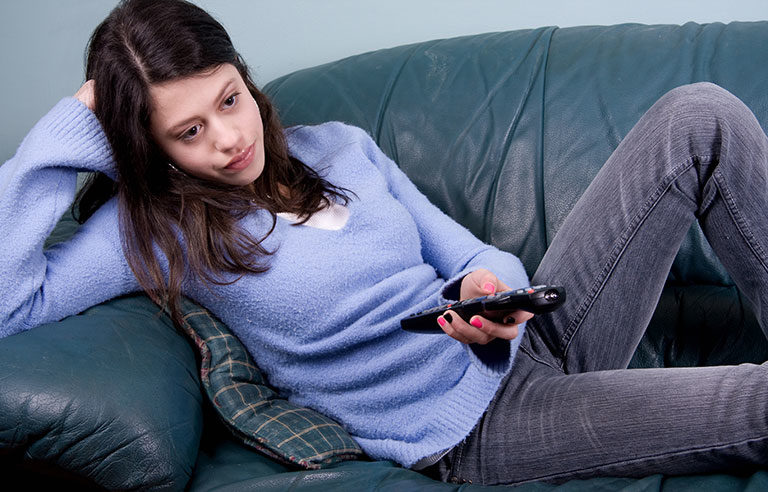Binge watching TV linked to poor sleep among young adults: study

Darien, IL – Young adults who binge watch TV typically get poor sleep and, as a result, experience fatigue and insomnia, according to an American Academy of Sleep Medicine study.
Researchers surveyed 423 adults ages 18 to 25 on their regular TV viewing, binge viewing, sleep quality, fatigue, insomnia and pre-sleep alertness. More than 80 percent of respondents said they were binge-watchers – defined for the study as people who watch multiple episodes of a show on any screen in one sitting – and 20 percent of that group reported doing so at least a few times a week in the month prior to taking the survey. Binge sessions among the group averaged three hours and eight minutes.
Results showed that binge-watchers had a 98 percent higher likelihood of sleeping poorly compared to respondents who did not consider themselves binge-watchers.
“Bingeable shows often have a complex narrative structure that makes viewers become completely immersed into the story,” Jan Van den Bulck, a professor in the Department of Communication Studies at the University of Michigan and study co-author, said in an Aug. 14 press release. “This intense engagement with television content could require a longer period to ‘cool down’ before going to sleep, thus affecting sleep overall.”
To get healthy sleep, AASM recommends these tips for binge-watchers:
- Set an episode limit before watching a show.
- Take breaks between episodes.
- Catch up on your favorite shows on weekends.
- Stream shows to your TV instead of your mobile device at night to reduce exposure to brightly lit handheld screens.
- Avoid using mobile devices while in bed.
- Turn off all screens at least 30 minutes before bedtime.
The study was published in the Aug. 15 issue of the Journal of Clinical Sleep Medicine.
AASM, together with the Centers for Disease Control and Prevention and other groups, has launched a campaign that emphasizes how children, teens and adults need to “Make Time 2 Sleep.” Learn more at projecthealthysleep.org.
Post a comment to this article
Safety+Health welcomes comments that promote respectful dialogue. Please stay on topic. Comments that contain personal attacks, profanity or abusive language – or those aggressively promoting products or services – will be removed. We reserve the right to determine which comments violate our comment policy. (Anonymous comments are welcome; merely skip the “name” field in the comment box. An email address is required but will not be included with your comment.)

